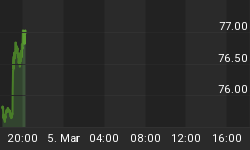With over 2.5 million jobs lost in 2008 and G.D.P. estimates for Q4 projected to fall at a minus 6% annual rate, all hopes are now pinned on an Obama stimulus program that could exceed $1 trillion. Are investors hopes well-grounded in believing a government going further into debt can bring about a sustained economic recovery? I think not, and here's why:
When a government's revenue falls short of expenditures it issues debt to pay for the difference. That debt can be sold to the private sector, foreign investors or monetized by the Fed.
If the debt is sold to the private sector, money is merely transferred from domestic investors to the government. Moving money from the private to the public sector usually results in a misallocation of capital. Essentially, this is a voluntary tax increase, but one that requires a true tax increase in the future to pay off the debt. All that is accomplished is to decrease the money available for private investment and to increase the money available for government redistribution. The result is not improved growth but an increase in government control over the economy. Since the U.S. consumer does not have adequate savings at this time, most of the new debt will not be financed from domestic purchases.
If the debt is purchased by foreign entities, you generate an obligation to pay principal and interest in U.S. dollars which must be eventually sold and converted into foreign currencies. This puts downward pressure on the dollar and, hence, upward pressure on inflation. China holds $1.9 trillion in currency reserves of which about 70% are in U.S. dollars. But China has ginned up its own $600 billion stimulus package (a much larger percentage of their G.D.P.) and thus will not likely have the money available to finance our debt to the same degree as it has in the past. A reduced trade surplus along with pressing domestic needs to stimulate their own economy leads to the conclusion that most of our new debt will also not be gobbled up by China.
That leaves the last payment option for Mr. Obama's deficit spending plan -- inflation, since the Fed will be the primary purchaser of the new debt. However, an increase in the money supply from today's already robust growth levels will not bolster productivity or G.D.P. growth. Any new money introduced into the economy at this juncture should only encourage producers to raise prices rather than boost output. What our government has still yet to learn is that throwing more money at a problem is not the solution and substituting inflation for deflation solves nothing. Economic growth comes from permanently low taxes, low inflation, savings and naturally-low interest rates. Those conditions tend to exist only in an economy where government intervention is waning, not waxing. I remember when government was considered a cancer, not the cure. RIP, Ronald Reagan.
Amazingly, it seems the man credited along with Reagan for laying the foundation for our long era of prosperity, Paul Volcker, is effectively no longer with us, either.
I discuss similar themes in this week's podcast, the Mid-Week Reality Check.















